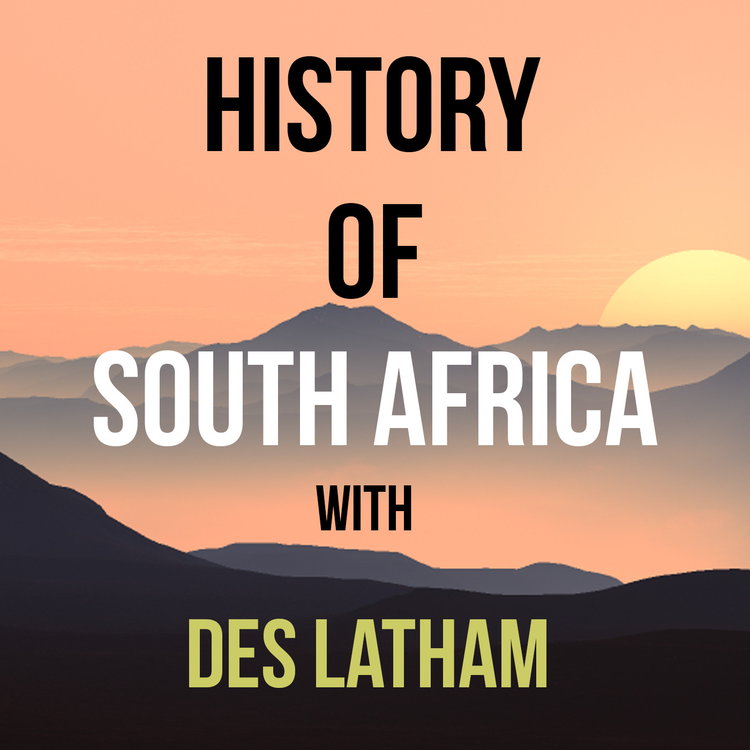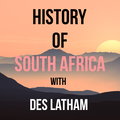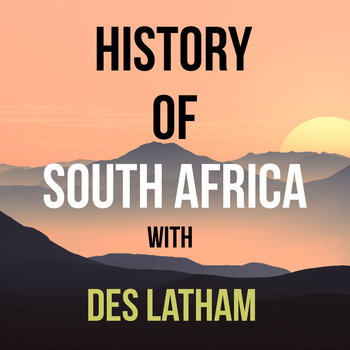
Episode 122 - Lord Glenelg moulds a troublous history
Loading player...
Let’s take another look at the push factors driving the Voortrekkers away from their frontier farms. Most had lived on the margins of society for generations, part of the first group of Dutch who began spreading out from the Peninsular in the 17th Century, developing an ethos of independence and a culture of self-reliance.
They were naturally anti-establishment if you like, while being presented as ultra conservative in their religion. In modern terms this implies certain characteristics which I creates a classic misreading of who they were.
Remember the first trekkers were not averse to marrying Khoekhoe and even amaXhosa women, it was only later that their conservatism morphed into a belief in racial separation.
You know enough by now not to make the mistake of double-guessing our ancestors based on modern politics and society’s rules, the prism of the present is a social blindfold when it comes to perception. It gets the crude and raw politician of any epoch into a logic gridlock, an intellectual cul de sac.
There was no doubt that the actions of Lord Glenelg when he took over the Colonial Office in 1835 exacerbated the Boers perceptions of the English. Remember how he’d met Andries Stockenstrom the Dutch Swede who had briefed him about how the Khoekhoe servants were treated in the Cape. Glenelg then overturned decisions to move the frontier to the Kei river, an action which marked him both as a blunderer and a misguided liberal.
It is true that this story became the most deeply embedded consequence of the war in the colonial pysche, it was an imprint that never faded, it was bitterly mulled over for the next one hundred years, and it was also in an ironic mental shift, the moment that the English speaking settlers became African. They’d been thrown under the colonial bus by both their King and country.
They suddenly realised that their homeland was no longer their friend, the political leadership of the British govenrment had turned them into aliens, they no longer recognized themselves as English. This would take another generation or two to play out, but folks, it was a moment.
What we have to understand is that while this was going on in relation to the 1820 Settler stock, further north east, in Port Natal, the settlers there were very much in favour of the British government. They were two different sets of English speakers, which we kind of lump together.
Interestingly enough, something like this was also going on in Canada and in Australia and New Zealand. The English speakers there were grappling with their own nationality.
For the Boers, Glenelg’s decision was easier to cope with than for the 1820 Settlers — the Boers had never trusted the English so it was time to leave. The boers had always directed their own fate, while the 1820 settler was implacably tied to their countries foreign policy. The Boers were interested in land, but didn’t really care for Glenelg’s annexation of the province of Queen Adelaide - they’d still be vassals to the British empire there anyway.
They were naturally anti-establishment if you like, while being presented as ultra conservative in their religion. In modern terms this implies certain characteristics which I creates a classic misreading of who they were.
Remember the first trekkers were not averse to marrying Khoekhoe and even amaXhosa women, it was only later that their conservatism morphed into a belief in racial separation.
You know enough by now not to make the mistake of double-guessing our ancestors based on modern politics and society’s rules, the prism of the present is a social blindfold when it comes to perception. It gets the crude and raw politician of any epoch into a logic gridlock, an intellectual cul de sac.
There was no doubt that the actions of Lord Glenelg when he took over the Colonial Office in 1835 exacerbated the Boers perceptions of the English. Remember how he’d met Andries Stockenstrom the Dutch Swede who had briefed him about how the Khoekhoe servants were treated in the Cape. Glenelg then overturned decisions to move the frontier to the Kei river, an action which marked him both as a blunderer and a misguided liberal.
It is true that this story became the most deeply embedded consequence of the war in the colonial pysche, it was an imprint that never faded, it was bitterly mulled over for the next one hundred years, and it was also in an ironic mental shift, the moment that the English speaking settlers became African. They’d been thrown under the colonial bus by both their King and country.
They suddenly realised that their homeland was no longer their friend, the political leadership of the British govenrment had turned them into aliens, they no longer recognized themselves as English. This would take another generation or two to play out, but folks, it was a moment.
What we have to understand is that while this was going on in relation to the 1820 Settler stock, further north east, in Port Natal, the settlers there were very much in favour of the British government. They were two different sets of English speakers, which we kind of lump together.
Interestingly enough, something like this was also going on in Canada and in Australia and New Zealand. The English speakers there were grappling with their own nationality.
For the Boers, Glenelg’s decision was easier to cope with than for the 1820 Settlers — the Boers had never trusted the English so it was time to leave. The boers had always directed their own fate, while the 1820 settler was implacably tied to their countries foreign policy. The Boers were interested in land, but didn’t really care for Glenelg’s annexation of the province of Queen Adelaide - they’d still be vassals to the British empire there anyway.

